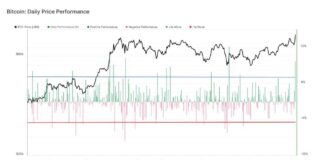In a groundbreaking decision, the Lido Finance community voted to integrate its stETH (Staked Ethereum) into the BNB Chain on August 9. This marks the first time Lido has connected to a layer-1 blockchain outside of the Ethereum ecosystem, thanks to an on-chain vote by the Lido decentralized autonomous organization (DAO).
The integration will leverage Axelar and Wormhole as the solutions to bridge stETH to the BNB Chain. This move is significant as it allows Lido’s total value locked (TVL) to interact with one of the top five chains by TVL, expanding its reach and utility in the decentralized finance (DeFi) sector.
Lido Finance has been a dominant player in the Ethereum staking market with a substantial 28.2% share of net ETH deposits. Despite a slight dip earlier in the year, Lido’s position as a leading staking platform is reinforced by its extensive validator network, which reached one million in April 2024. This growth highlights the platform’s crucial role in the DeFi ecosystem and its impact on staking services.
Liquid staking protocols like Lido have made significant contributions to the DeFi landscape. Unlike traditional staking, which locks funds for a set period, liquid staking allows users to earn yields while retaining the flexibility to move or trade their staked assets.
For Lido, this process involves depositing ETH to receive stETH, a token that earns interest and can be redeemed at an approximate 1:1 ratio with the underlying asset. According to DefiLlama data, Lido’s liquid staking protocol commands a remarkable $26.227 billion of the total $83.782 billion in the DeFi ecosystem, solidifying its position as the largest DeFi protocol.
With this integration into the BNB Chain, Lido is expected to further enhance its influence and operational scope within the DeFi space. The move not only marks a significant milestone for Lido Finance but also demonstrates the continuous evolution and expansion of the DeFi sector as a whole. As DeFi continues to grow and evolve, innovations like cross-chain integrations will play a crucial role in shaping the future of decentralized finance.

















